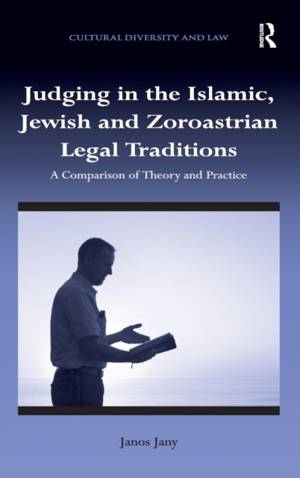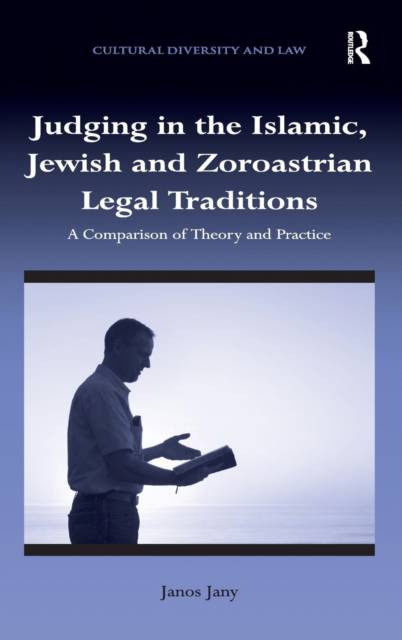
Bedankt voor het vertrouwen het afgelopen jaar! Om jou te bedanken bieden we GRATIS verzending (in België) aan op alles gedurende de hele maand januari.
- Afhalen na 1 uur in een winkel met voorraad
- Gratis thuislevering in België vanaf € 30
- Ruim aanbod met 7 miljoen producten
Bedankt voor het vertrouwen het afgelopen jaar! Om jou te bedanken bieden we GRATIS verzending (in België) aan op alles gedurende de hele maand januari.
- Afhalen na 1 uur in een winkel met voorraad
- Gratis thuislevering in België vanaf € 30
- Ruim aanbod met 7 miljoen producten
Zoeken
Judging in the Islamic, Jewish and Zoroastrian Legal Traditions
A Comparison of Theory and Practice
Janos Jany
€ 305,45
+ 610 punten
Uitvoering
Omschrijving
This book presents a comparative analysis of the judiciary in the Islamic, Jewish and Zoroastrian legal systems. It compares postulations of legal theory to legal practice in order to show that social practice can diverge significantly from religious and legal principles. It thus provides a greater understanding of the real functions of religion in these legal systems, regardless of the dogmatic positions of the religions themselves. The judiciary is the focus of the study as it is the judge who is obliged to administer to legal texts while having to consider social realities being sometimes at variance with religious ethics and legal rules deriving from them. This book fills a gap in the literature examining Islamic, Jewish and Zoroastrian law and as such will open new possibilities for further studies in the field of comparative law. It will be a valuable resource for those working in the areas of comparative law, law and religion, law and society, and legal anthropology.
Specificaties
Betrokkenen
- Auteur(s):
- Uitgeverij:
Inhoud
- Aantal bladzijden:
- 242
- Taal:
- Engels
- Reeks:
Eigenschappen
- Productcode (EAN):
- 9781409437161
- Verschijningsdatum:
- 21/06/2012
- Uitvoering:
- Hardcover
- Formaat:
- Genaaid
- Afmetingen:
- 156 mm x 234 mm
- Gewicht:
- 526 g

Alleen bij Standaard Boekhandel
+ 610 punten op je klantenkaart van Standaard Boekhandel
Beoordelingen
We publiceren alleen reviews die voldoen aan de voorwaarden voor reviews. Bekijk onze voorwaarden voor reviews.









